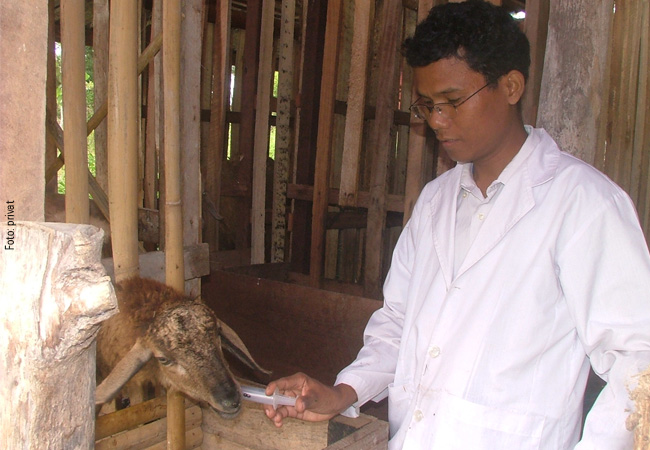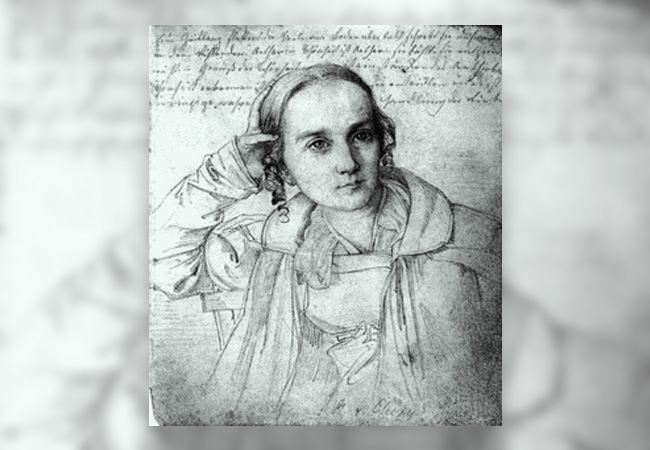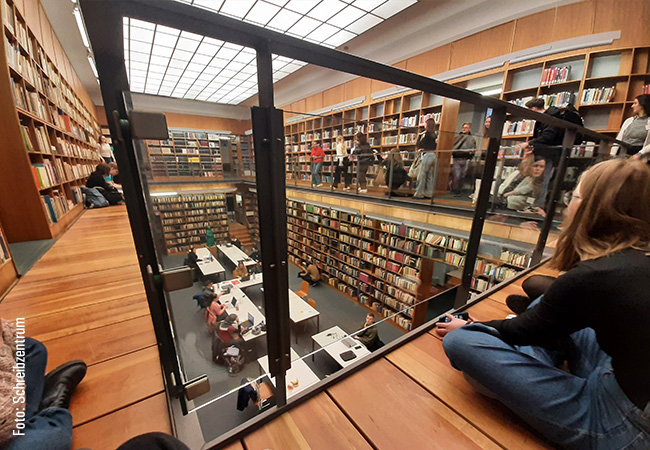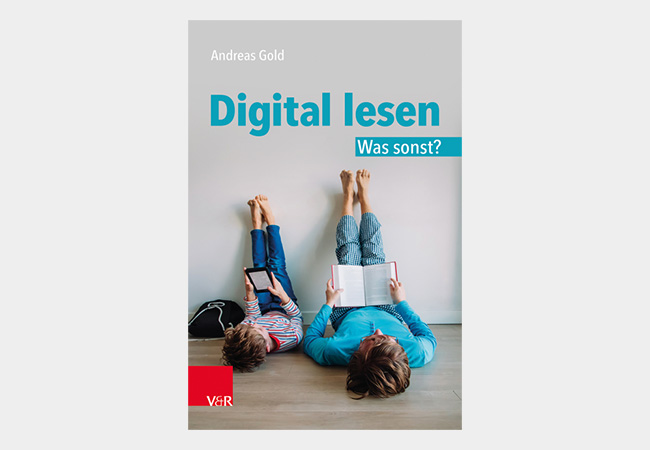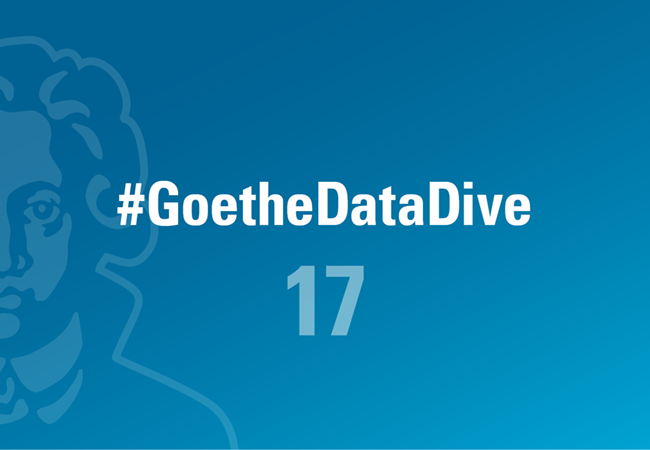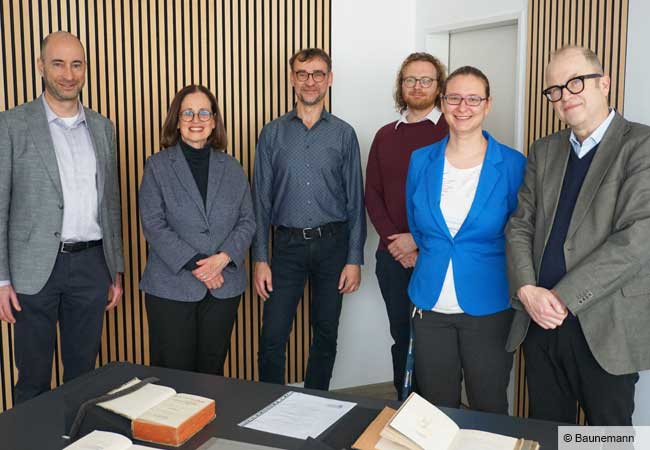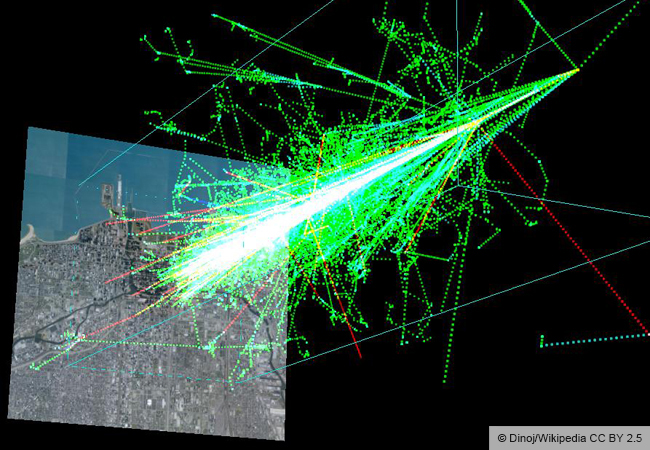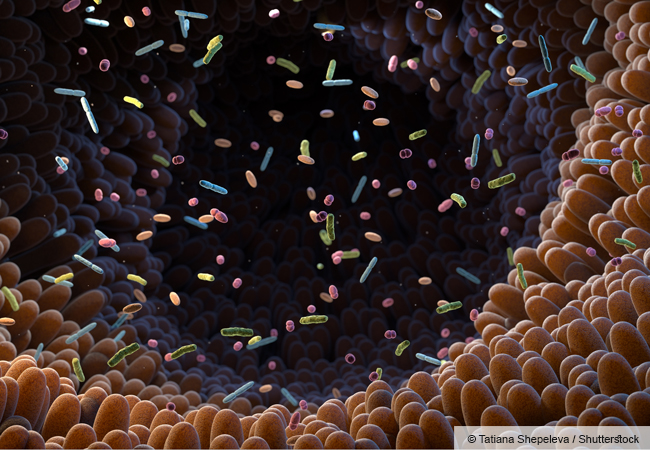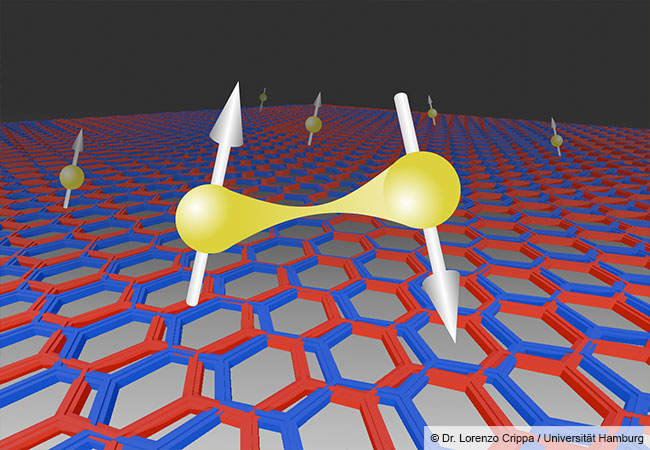Interview with journalist Jeanette Schindler, winner of the 2022 Goethe Media Prize for her radio feature on the subject of “failing” in science.

UniReport: Ms. Schindler, how did you come up with this topic?
Jeanette Schindler: When the work carried out by Tübingen-based firm CureVac on developing a Coronavirus vaccine was threatening to fail (which ultimately ended up happening), I asked myself: What does this mean for the researchers? What are the consequences for them? And what happens with the results they generated? It shocked me to see how aggressively society reacted when scientists had to repeatedly amend their assumptions about the Coronavirus. People expected that what [German virologist] Christian Drosten says will hold true for all of time – even though we were able to watch scientists conduct their research in real time. In fact, they had repeatedly stressed that they didn’t yet know much about the virus. I got the impression that science assumes a pseudo-religious status – expressed in the omniscient scientist – in many people’s eyes.
Was it difficult to find people to talk about this topic, given the taboo?
Yes, it was, partly because I didn’t know who had in fact failed. And when I talk to researchers about failing, they don’t want it made public. Even though conferences were already being held on the topic in 2021, like the ones organized by the Volkswagen Foundation and the University of Erlangen.
Failure can be interpreted in very different ways. There is the concrete failure of doing something, i.e. in the strict sense, but it could also connote the absence of recognition from the scientific community.
That’s true. We have to differentiate very precisely between different types of failing, including, for example, because you followed a risky hypothesis and the assumption turned out to be wrong, i.e. you were pursuing an incorrect idea. That’s a normal part of research. Then there’s the type of failure you encounter because you made a mistake at some point during the research process. In both cases, these are problems that universities and research institutes have to address. In 2021, psychologist Maja Dschmuchadse of the University of Applied Sciences Zittau-Görlitz criticized the fact that there was too little independent checking, arguing, among others, that academic papers should not be assessed by people involved in the work. Together with several colleagues, she had published a position paper critical of the power relations at universities and research institutes, for instance. (Link to the Paper)
Fuckup Nights are popular in the start-up-scene, but don’t constitute a solution to the problem, do they?
No, I think the Fuckup Nights in the start-up scene are more of a performance. I don’t think shows like that are really helpful. The point is not to put failure on a pedestal of sorts, which would constitute a false glorification, but to treat failure as something normal. In line with the motto: failure happens, it’s part of normal life, but it’s better not to fail! What’s important is to draw conclusions from “failed projects” and use them for future benefit.
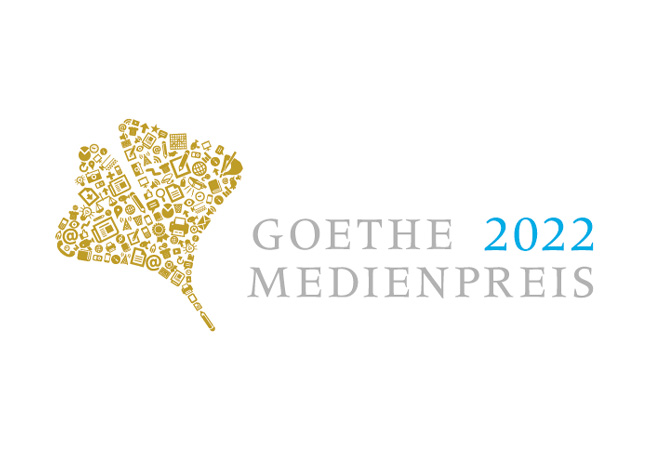
GOETHE MEDIA PRIZE 2022
THE WINNERS
FIRST Jeanette Schindler: »Scheitern« in der Wissenschaft – Wie ein Tabu das Forschen erschwert [“Failing” in science – How a tabu impedes research] (Südwestrundfunk, March 3, 2022)
SECOND Lea Weinmann (et al.): China Science Investigation (Süddeutsche Zeitung, May 19, 2022)
THIRD Friederike Haupt: Vorbilder. Angela Merkel hat immer wieder über Marie Curie gesprochen. Warum? [Role-models. Angela Merkel often talked about Marie Curie. Why?] (Frankfurter Allgemeine Sonntagszeitung, December 5, 2021)
The Goethe Media Prize was awarded for the eighth time in 2022. It was established in 2008 on the initiative of Goethe University and co-funded by the FAZIT Foundation and the German Association of University Professors and Lecturers (DHV). To this day it remains the only award in the German-speaking area that focuses solely on the works of journalists in science and university policy. Since 2008, the prize – which comes to almost 50,000 euros – has been awarded to 21 laureates, in the categories of print, online and radio media. Comprised of recognized experts, the jury was faced with a particularly difficult choice this time, having received nearly 300 applications mainly from leading supraregional media. The Goethe Media Prize has established itself as an independent award in an extensive field of more than 300 German prizes for journalists. The Goethe Media Prize 2022 was presented at the DHV’s “Gala der Deutschen Wissenschaft” on April 3, 2023.
But there is a certain “false glorification” as described by Prof. Julika Griem, Vice President of the German Research Foundation [Deutsche Forschungsgemeinschaft, DFG]?
Yes, exactly. What Ms. Griem is talking about is failure becoming stylized into a bullet point on a CV. Ultimately, what she is interested in is a responsible approach to research funding. I understand that the way these DFG funds are invested must be carefully weighed, also due to the criticism that too little is invested in innovative research ideas because they initially don’t appear likely to generate success and profit. In my opinion we’ve backed traditional thinking for far too long, particularly when it comes to searching for new forms of energy and sustainability.In your feature you also talk about the problem facing early career researchers, who are under tremendous pressure and therefore can afford to make even fewer mistakes.
In your feature you also talk about the problem facing early career researchers, who are under tremendous pressure and therefore can afford to make even fewer mistakes.
Yes, that’s right. Physicist Vahid Sandoghdar, a Humboldt Professor at the University of Erlangen and director of the Max Planck Institute there, recalled in an interview that he finds it absolutely normal in his day-to-day activities when something doesn’t work. But of course he’s speaking about failure from a privileged position – after all, the scientific community is well aware of his successes. When you’re just embarking on a scientific career it’s much more difficult to sell a failure, even if the reasons for it may be very varied.
Your feature also mentions the so-called reproducibility crisis – in psychology, a study repeated under identical conditions replicated only 36 percent of the results.
In 2011, the Center for Open Science launched a project, as part of which more than 100 scientific psychological studies were repeated. Afterward, while taking a closer look at the results, it was found that information about an experiment’s set-up and procedures is just as crucial as information on how the human subjects were selected. What’s more, this data must also be made accessible to other researchers.
On the one hand we lack a “culture of failure,” while on the other, we constantly strive for success – isn’t this a tricky balancing act?
To me, aiming for success and accepting failure – shaking off its taboo – are certainly not mutually exclusive. Quite the opposite: If a research group or institute wants to be successful, it must address the topic of failure. It is imperative to discuss why something failed and how the findings can be used. When errors occur, it’s better to talk about them openly – without discrediting the person who caused them – so they are not repeated. An open and respectful approach to failure and a constructive culture of errors lead to more success.
Would more willingness to embrace a culture of errors also be helpful in journalism? Might some people fear that such a culture could encourage accusations of “fake news”?
We’re very careful to avoid mistakes. Even though every text is double-checked by a colleague, of course mistakes still occur. I consider it normal that journalists assume responsibility for any errors, correct any misrepresentations, and apologize. I don’t think doing so damages a journalist’s reputation – I think it enhances it. After all, accusations of “fake news” don’t always have to do with objectively false claims in the media, but with different perceptions or interpretations of reality.
Questions: Dirk Frank


